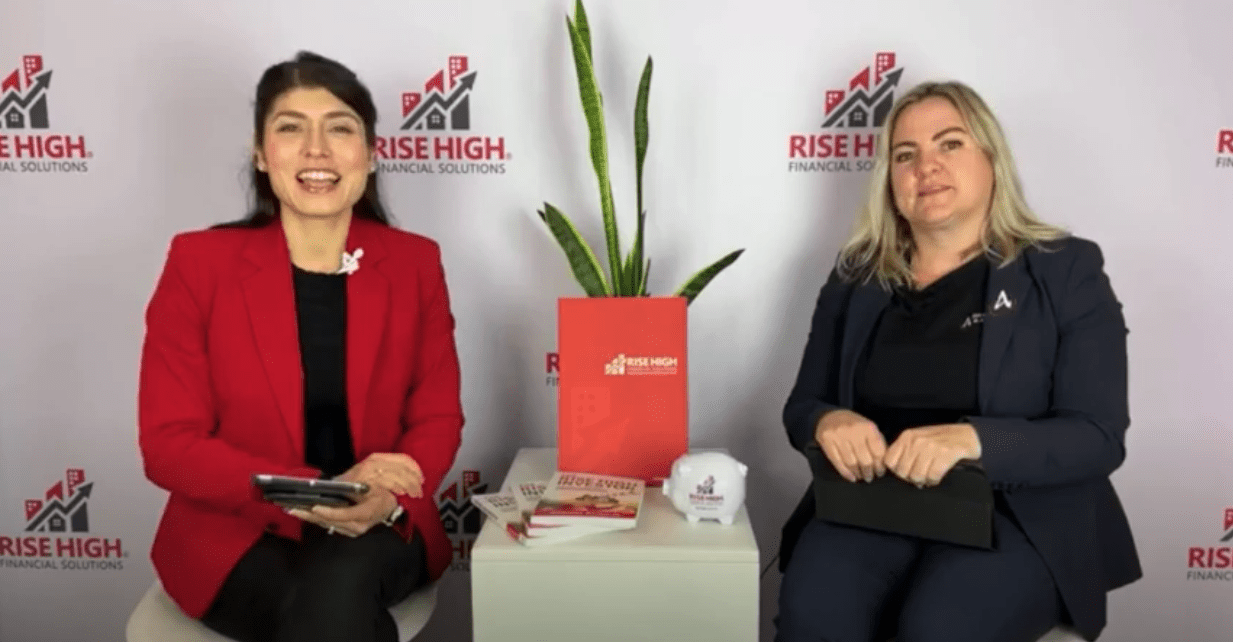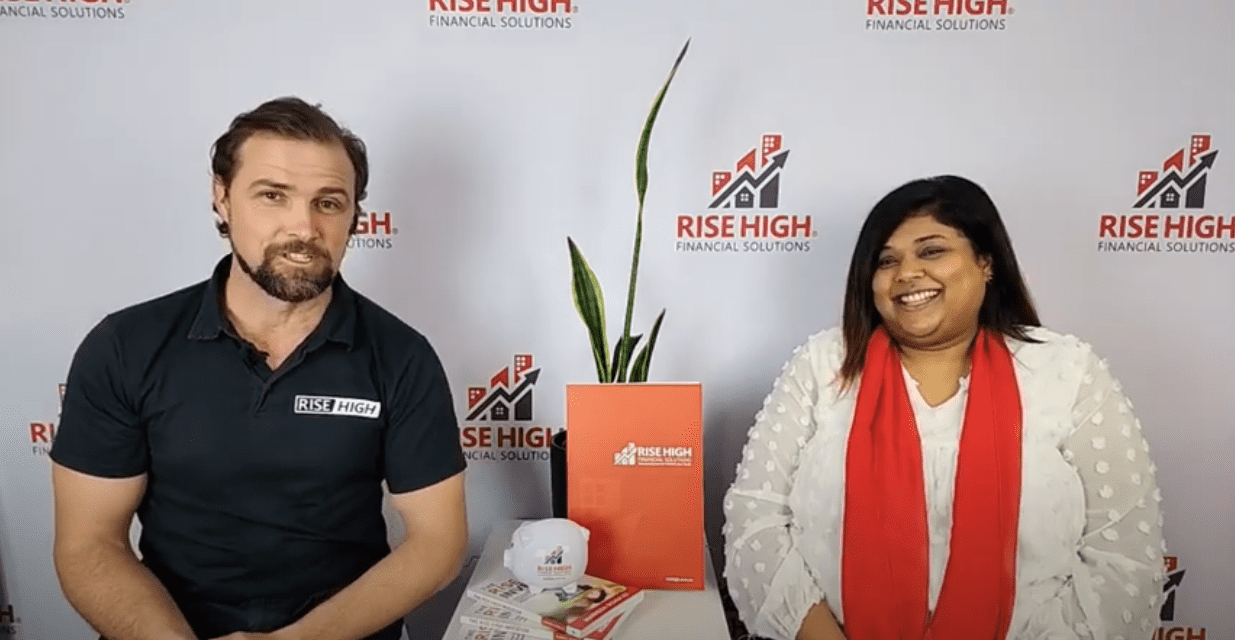Whether you’re planning for your first home, aiming to grow your wealth, or simply looking to manage your finances better, having access to the right information from an early age can make a massive difference in setting you up for a lifetime of success.
From savvy saving strategies to smart investment moves, our Rise High champions Josh Finckler and Marissa Schulze are here to share their expert tips and empower you financially!
Let’s get started:
1. Improve your financial literacy
2. Work on your budget
As your financial literacy skills grow, you’ll soon discover the importance of becoming the boss of your own money.
That probably starts with, what can sometimes be a bit of a dirty word, budgeting!
To get started you’ll want to answer one key question:
-
what are your needs and what are your wants?
If so far you’ve been doing some discretionary spending on wants rather than focusing on needs, you’ll want to start by understanding what your income is (whether that be weekly, fortnightly, monthly, or so on and so forth), and then, what your actual non-negotiable expenditures are along with that.
-
A restrictive budget vs an empowering budget!
-
You’re not alone!
Although these days apps can do wonders in helping you track this, you can also count on the guidance and support of an expert.
Our brokers at Rise High can support you in this process and help you uncover potential areas for improvement free of charge! So reaching out to your dedicated broker is something you should definitely consider.
3. Pay yourself first
This is an exciting one, and it’s all about you!
Oftentimes when we think about our savings, we believe the best approach is to save what is left from the pay we’ve received. Unfortunately, this rarely happens and we end up being unable to save as there is nothing left by the time the next pay comes!
Paying yourself first encourages you to have a set amount of money that you will put towards your savings every time you get paid BEFORE you go and spend what’s left. Whether this set percentage or amount is saved for an emergency fund, a holiday, or to save towards your home deposit, you must include this as part of your financial planning.
The amount you contribute will depend on what is left after you cover your “needs”. Once you know what your basic and non-negotiable expenses are (groceries, bills, rent,etc.), you will be left with an amount that becomes your “disposable income”. Allocating some of this disposable income to savings, and some to spend as you wish is key to getting ahead financially.
Ideally, you want to have enough left to save some money for a rainy day and still have some wiggle room to spend on the things that bring you joy.
To make this work, there are two things that you will want to keep in mind as well:
-
Make it easy!
Having the strength to not draw money out of your savings fund can be tricky as you adjust to your new lifestyle.
To make this easy, you may want to set up a savings account you won’t have in sight, or will not necessarily have easy access to. Increasing the resistance you have from seeing all that “spare” income you may have in the bank can keep you from spending it! If you struggle to keep it safe, plan ahead and play to your advantage. If it is out of sight (in a separate bank account, for example), it will be out of mind, making it less likely for you to spend it.
-
Make it automatic!
If distributing your money is not something you necessarily enjoy or want to do on a weekly/monthly/fortnightly basis, you can make the payment to your savings account automatically.
This way, you can set the transaction to be made even before you have a chance to spend it.
As an employee, you can request your employer to pay a specific portion of your pay into a different bank account. Alternatively, you can also set amounts to be automatically paid from your account to a different one via online banking apps and systems.
4. Consider getting into homeownership
Once your day-to-day finances are sorted, or even if you are still in the process of sorting them out and coming up with a plan, considering homeownership will also help you get ahead financially.
It is no secret that property in Australia is a great investment vehicle that has shown massive growth throughout the past decades. Although starting prices for your new home may be significantly higher than they used to be, making the dream possible is still something you can achieve!
Finding a mortgage broker who can provide great insight into the opportunities available to make this possible for you is a great starting point. With rent values continuously rising and fluctuating, investing those funds you’d be spending on rent towards a home you own will build your equity long-term, as your money will be spent on securing an asset that will grow in value over time.
5. Plan to grow your wealth through investments
Though you may not be in a position to start investing right away, you are always in a good position to develop a plan!
The goal is to make sure your money can eventually work for you long-term, and investments are a great way of making this happen. It is never too early to start thinking about investments! In fact, the earlier you start, the better. There is no time like the present.
Looking to plan for this massive step now can help you identify things you can work on from now to be in a better position to invest. Things like increasing your borrowing capacity, or cleaning up your credit score, often require time and can be helped while you build the savings you need to start investing.
6. Minimise your debts
In an ideal world, there wouldn’t be any “bad” debts to cover (can you differentiate between “good” and “bad”?).
In the real world, many of us can struggle to stay afloat or resist temptation, and may occasionally choose to get a loan or go for after-pay options we intend to cover in the future months.
The sooner you pay them off, the less interest you are likely to be paying long-term. Managing your finances and freeing up your budget as you pay them off, will also significantly increase your financial well-being.
-
Use the snowball effect to your advantage!
If you have multiple loans or debts to cover, we suggest starting with the smallest one.
As you progress and celebrate your victories every time you cover one of your debts, momentum will carry you forward to conquer those that may not seem so easy to tackle.
This creates a snowball effect, that builds your confidence and frees up your budget bit by bit, bringing you closer to having full control of your money and finances!
At Rise High, we hope this upcoming year to be the year you get ahead financially and start a lifelong journey of financial success! Whether you are looking to gain a better understanding of where your money is going or come up with a long-term investment plan, we would love to guide and assist you in making your dreams come true!
Our award-winning brokers are keen to help, and will always be here to welcome you with stellar service at no cost! Ready to get started?


